From July 1 to 5, BASF|Nunhems held a new edition of its Melon & Watermelon Business Event by Experts at its R&D center in La Palma, in Cartagena, Spain. Once again, under the slogan 'What's Next', the seed company brought together growers, marketers and distributors from all continents to show them what's new for both crops.
"Our aim is to showcase the various solutions we offer to make it possible to meet the market's growing and demanding requirements," says Juan Pedro Pérez, Regional Crop Lead for melon and watermelon at BASF. The ultimate goal is "to achieve maximum consumer satisfaction," a challenge that must be shared by the entire value chain, from seed to the supermarket.
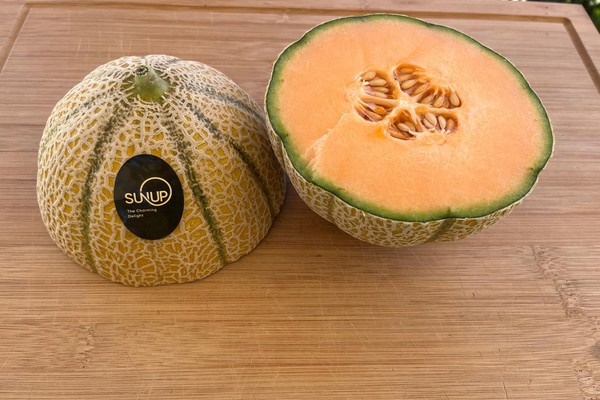
To achieve this, BASF|Nunhems is basing its entire R&D on four fundamental aspects: yield and quality, trust, versatility and innovation.
Yield and quality
"The grower must achieve maximum profitability, and without losing sight of this objective, the seed company is developing varieties that maximize the yield thanks to a high degree of hardiness and resistance to pests and diseases, making it thus possible to keep discards to a minimum," says Pérez.
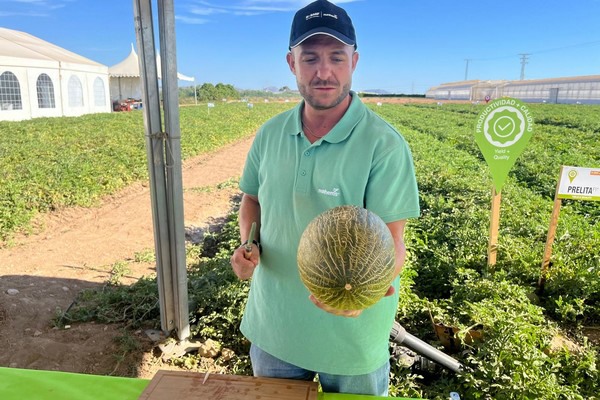
This year, their range has been expanded with new additions of many different types of melons, including the NUN 68152 MEM F1 Piel de Sapo, with which they claim to be starting a new genetic line they call "superplant." José Ramón Naranjo, Sales Specialist at BASF, says that NUN 68152 MEM F1 "has a strong root system with great resistance against soil fungus. It also has a vigorous plant which covers the fruit very well and can adapt to climatic changes."
They also showed the Aragorn Charentais, a variety for the early cycle in Murcia (transplanted in February) which "combines flavor, production and resistance," says Enrique Ballester, BASF Account Manager, adding that it also has resistance to powdery mildew (including race 3.5) and aphids. Another interesting addition is the NUN 12352 MEM F1 cantaloupe, a variety with high vigor and a powerful root system that combines high production, resistance and speed in accumulating sugar.
As for watermelons, the seed company is also working to offer varieties such as the CS117 F1º, which will join already consolidated products such as the Style F1, Bazman F1 and Bengala F1.
Trust: "With projects such as Galkia, Galia consumption is increasing"
"Gaining consumer trust is absolutely essential for any melon or watermelon variety to achieve success in the market, something that is only possible by guaranteeing consistently high quality. Thus, we have set up partnership projects for melons such as Galkia®, with the three largest producers of Galia melon in Spain, as well as Sunup, Tiare or Fashion and Premium Universe for watermelons. This is all a testament to our capacity to strike strategic partnerships with our clients, combining our visions and efforts to offer the best experience to the consumer all year round," says Enrique Ballester.
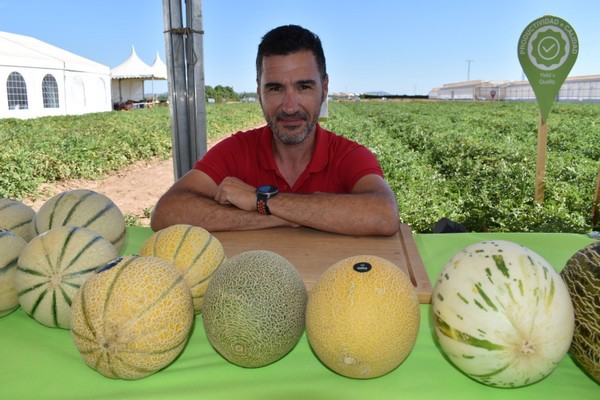 BASF Account Manager Enrique Ballester.
BASF Account Manager Enrique Ballester.
"With the Galkia® project, we are contributing to boosting the consumption of Galia melons," says Juan Pedro Pérez. "There are already between 600 and 700 hectares of this variety in production in Spain, of the around 2,000-2,500 hectares planted, and we could reach 900 hectares next year. We are also testing this variety in Morocco, aiming to be able to start earlier with our schedule."
"We work closely with our partners not only to provide the best varieties, but also to develop and promote optimal solutions for the consumer," he says.

Versatility: Introducing the Dual Market concept
"A few years ago, BASF|Nunhems launched the dual-purpose concept for watermelons, with the aim of bringing to market varieties that are suitable for fresh marketing and also minimally processed. Examples of this are the Harmonium F1, Bazman F1 and, more recently, the Amazo F1 and Zenium F1."
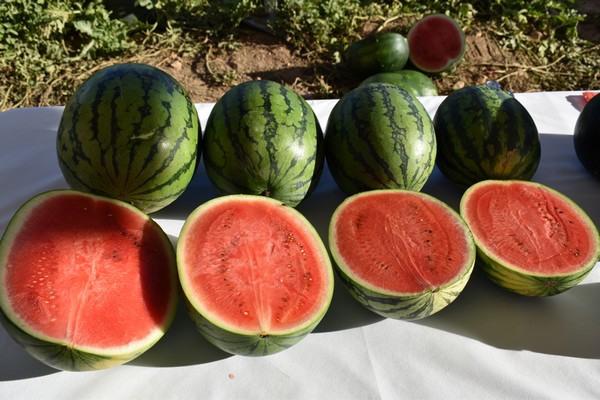
"We are currently introducing the dual market concept, which for now will be focused on melons. We have a wide range of varieties and sizes, depending on handling and post-harvest behaviour, and that's allowing us to tackle both the domestic and export markets."
For the time being, this new concept features the Kumara and NUN 68122 MEM F1 Piel de Sapo melons.
Innovation
"Innovation is key for the entire value chain, with outstanding solutions offered to consumers who are eager for new experiences," says Pere Montón, Senior Account Manager at BASF.
"We already have our Ayami F1 watermelon, ideal for one person, and this year we are introducing the Takemi F1, a very versatile variety, which can be used both in monoculture programs and as a pollinator. It is a mini watermelon weighing around 2 kilos, with black skin, micro-seeds and a very exclusive internal quality," says Pere Montón. "It is a mini diploid watermelon with the same flavour as the larger-sized ones and a crunchy flesh, as if it were a seedless one".
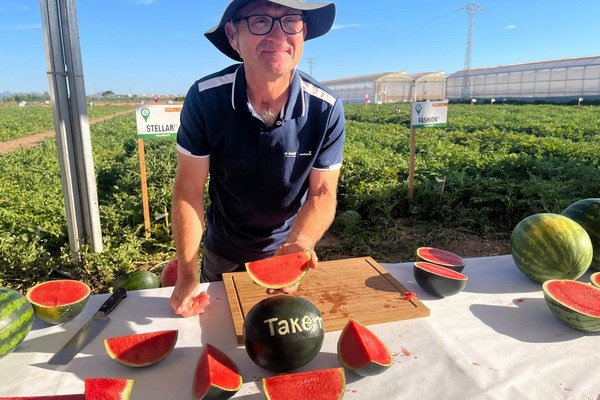
They are also introducing the extra long shipper (ELS) concept, under which they are launching high quality watermelons with a good post-harvest in order to develop the off-season market. Under this new concept, this year they have showcased the NUN 32010 WMW F1.
But innovation is not limited to watermelons. In melons, they are still committed to the Dino Crispy, and this year they are launching their first Piel de Sapo with orange flesh for export. "We are aiming for a clear differentiation of Piel de Sapo melons for export," says Juan Pedro Pérez.
 Elvira Vitores Mas
Elvira Vitores Mas
Nunhems Spain SAU
Avenida El Treinta, 178, 04710,
Sta Mª del Águila - El Ejido, Spain
Tel.:+34 950 497 776
elvira.vitores@vegetableseeds.basf.com
www.nunhems.es
